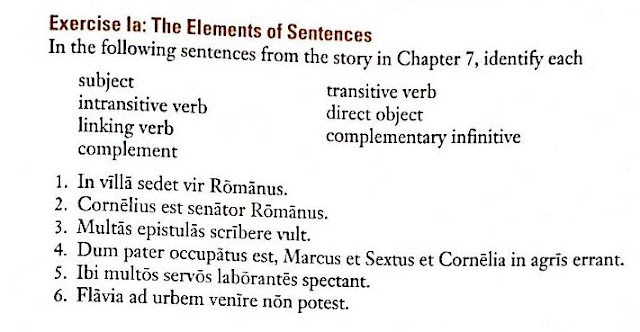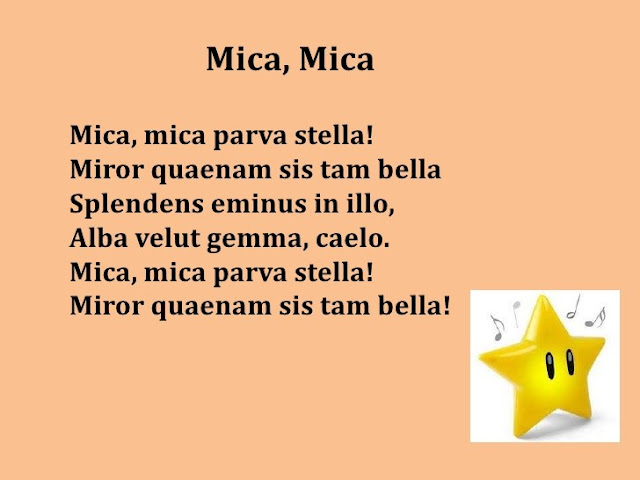Posts
Sub instructions
- Get link
- X
- Other Apps
I am in great pain today and can't make it in. Was up most of the night. Begin class with a matching quiz on half sheets of paper on the vocabulary for Chapter 7. Copies on desk at front of room. We are still doing a unit on Roman slavery. I am attaching a film viewing guide, which has already been distributed to the students. The classes have viewed the film to about the intermission point. Between 1;20 and 1;40. Each class can tell whomever is showing the film how far they got. The film, Spartacus, is three hours long, so there is no danger of finishing it. Please have students review the study guide before showing the film. I left the tab open on my computer that takes you to my Amazon Prime account. I own the film Spartacus. If by chance the log on needs to be re-entered and the computer does not supply the information automatically, ... All necessary materials are on the desk at the front of the room. These are also in the...
HOMEWORK: Reading with attention to cases.
- Get link
- X
- Other Apps
Read pages 42-43 in Chapter 7 of Ecce Romani, which focuses on recognizing nominative and accusative cases of nouns. Then do Exercise 7 on page 44 . Follow link or see below. Ex e rci s e 7f Chapter 7 page 44. HOMEWORK. DUE OCTOBER 30 Study the grammar explanations on pages 42 and 43 in Ecce Romani. Then read each sentence below aloud. Identify subjects and direct objects . Then translate. 1. Servus senators videt. 2. Arbores pueri saepe ascendunt. 3. Clamores puellas terrent. 4. Patres magnos fragores audiunt. 5. Patrem voces vexant. 6. Voces in horto audit. 7. Patres in via conspiciunt. 8. Patres pueros in via conspiciunt. 9. Patres solliciti clamores audiunt. 10. Magnas voces patres audiunt.
Roman slaves, freedmen and freedwomen Powerpoint addressed to Reading in Cambridge Latin Course, Chapter 6
- Get link
- X
- Other Apps
Blendspace: Roman Slaves and Slavery: Essays, Primary Sources, Images October 23-25
- Get link
- X
- Other Apps
Use a computer or other device to access the texts and images in Blendspace. Paper copies of some of the texts are available if you prefer to study the texts this way. DO NOT WRITE ON HARD COPIES. Open the link below to get to Blendspace, where you will find a collection of short essays, primary sources and images on the topic of Roman slavery. Everyone read the text from Cambridge Latin Course I (tile 2) and and the text from Ecce Romani, Chapter 6, "The Slave Market" (tile 4). Then read at least two of the other texts from 3-7. Use the questions in tile 3 as a guide to reading tile 2. Then read the primary source texts in tiles 8 and 9 (primary sources) and choose one of these to focus on. Look at the images. Take notes and prepare short presentations of the main points of each reading. Discuss your summaries as a group and make any changes that grow out of the discussion. You must include evidence from the texts to backup your observations on each readi...
10/23-25. Ecce Romani Chapter 7 Story: Bad News
- Get link
- X
- Other Apps
Ecce Romani Chapter 7 Story: Bad News In villa sedet vir Romanus, nomine Gaius Cornelius, qui est pater Marci et Corneliae. Cornelius est senator Romanus. Solus sedet quod multas epistulas scribere vult. Dum pater occupatus est, Marcus et Sextus et Cornelia in agris vicinis errant. Ibi multos servos laborantes spectant. Subito nuntium conspiciunt qui ad eos venit. Nuntius, ubi advenit, pueros salutat. 5 "Salve!" respondet Marcus. "Quem tu petis?" Nuntius, "Gaium Cornelium peto," inquit. Marcus, "Gaius Cornelius est pater meus," inquit. "Est in villa." Nuntium in villam ducit et patrem petit. "Pater," inquit Marcus, "nuntius in villa est." 10 Cornelius statim venit et nuntium salutat. Epistulam nuntius tradit. Cornelius, ubi epistulam legit, "Eheu!" inquit. "Princeps senatores Romanos ad urbem revocat. Eos consulere vult. Necesse est ad urbem redire." "Eugepae!" clamat ...
10/23 Warm Up Review Exercise 1a The Elements of a Sentence
- Get link
- X
- Other Apps

subject = doer of action of verb = nominative transitive verb= takes a direct object intransitive verb= does NOT take a direct object linking verb= a verb like sum, es, est, sumus estis sunt that acts like an equal sign between subject and predicate. The girl is smart. Girl = smart. Both words will be in nominative. direct object = receiver of action of verb complement= noun or adjective connected to subject by a linking verb. complementary infinitive = infinitive that completes the verb. Sextus arborem ascendere vult.
Mica Mica Parva Stella
- Get link
- X
- Other Apps

Vocabulary: mica = command form of micare , to shine, flash, twinkle (adMIRe) stella, stellae f. = star (conSTELLAtion; STELLAr) parvus, parva, parvum (adjective) little, small mirror = I wonder tam (adverb) = so bella = beautiful alba = white, bright, bright white gemma, gemmae f. = gem, jewel, diamond caelum, i n. sky, heavens (celestial, ceiling)
10/19/2017 Latin Case System Video and Notes
- Get link
- X
- Other Apps
We watched and took notes on this Latin Tutorial Video. Latin Case System by Latin Tutorial Key concepts There are FIVE families of nouns in Latin. These families are called DECLENSIONS Nouns belonging to the same DECLENSION have the same endings. Noun endings are added to the noun stem. The noun stem is determined by removing the genitive ending from the genitive (possessive) form of the noun. In a Latin dictionary nouns appear with the nominative form, the genitive form and the gender (m, f. n.: masculine, feminine, neuter). You have to memorize the genitive form. There are five main categories of noun endings. (See your color printed noun chart in your interactive notebook.) NOMINATIVE- subject GENITIVE - possession DATIVE- indirect object ACCUSATIVE - direct object ABLATIVE -(often) the object of a preposition These categories are called CASES CASES tell you what role the noun is doing in a sentence: Is it the subject of the verb? I...
New Codes for Quizizz Exercises Due Week of October 16
- Get link
- X
- Other Apps
Remind Codes: Get text reminders on your phone
- Get link
- X
- Other Apps
Note: I cannot see any phone numbers used to sign on to Remind. remind: Want reminders of homework or upcoming quizzes? Latin Period 01 text @279c29 to the number 81010. Or you can go to https://www.remind.com/join/279c29. You should receive a welcome text from Remind. If anyone has trouble with 81010, they can try texting @279c29 to (336) 923-7910 · Latin Period 02 : https://www.remind.com/join/966h8a. Or join with the text @966h8a to the number 81010. · Latin Period 03 : https://www.remind.com/join/ 03lat. Or join with the text 03lat to the number 81010
Uses of the Infinitive Latintutorial: Subjective, Objective and COMPLEMENTARY-Notes for Interactive Notebook
- Get link
- X
- Other Apps

Basic Grammar: Identifying the parts of a sentence
- Get link
- X
- Other Apps
In reading your homework and classwork done while I was away, it became clear that some of you do not easily recognize nouns, adjectives, verbs, adverbs, conjunctions and prepositions. The Activity Book exercises often ask you to identify parts of speech (nouns, adjectives, etc.) and their function in a sentence (subject, direct object, indirect object, object of a preposition, prepositional phrase, transitive, intransitive verb; command forms, infinitive forms, etc.). Here is a handout on the parts of speech, which are the same in Latin and English. Parts of Speech The Basics Videos by Latintutorial: Basic English Grammar Part I Basic English Grammar Part II Latin Sentence Structure Latin Case System (nominative = subject, genitive = possession, dative = indirect object, accusative = direct object, ablative = object of a preposition and other things, vocative = direct address) Introduction to Latin Infinitive Latin Infinitive Part I: Complementary Infinitive

